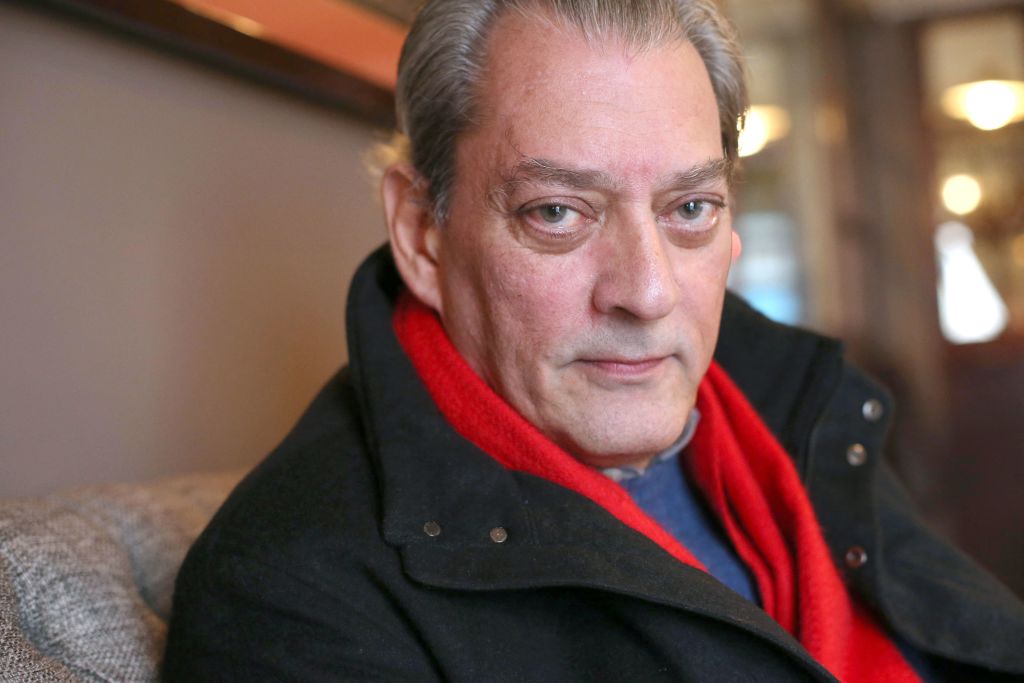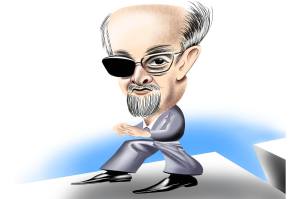In Salman Rushdie’s new memoir Knife, there is a powerful and moving moment — amid the many other powerful and moving moments — in which Rushdie visits his ailing friend Paul Auster at the latter’s house in Brooklyn and describes his sorrow at seeing him so reduced by illness. It may have been that the extent of the cancer that killed Auster had not been made public knowledge, although a statement was released about his condition, until Rushdie’s description of his encounter — and some might accuse him of indiscretion or indelicacy. Yet the news of Auster’s death, anticipated though it undoubtedly was, has meant that such questions recede almost immediately — and instead a consideration of his legacy as a writer, rather than an invalid, can begin.
It seems appropriate that I am sitting in New York as I write this tribute to Auster, as he was a New York writer par excellence, possibly the last in the same mold as the likes of Baldwin, Scott Fitzgerald and Capote. Even more so than a New York author, he was a Brooklyn writer; it was there that he lived and died, and the area’s DNA is tightly wound into his writing. Such works as his so-called “New York trilogy” of City of Glass, Ghosts and The Locked Room are, however, no sentimental rhapsody, but penetrating postmodern explorations of self and identity that nevertheless manage to remain accessible and witty.
There is generally a limit to how tolerant readers can be towards meta-fiction, and Auster dividing himself into two separate characters, “Paul Auster the writer” and “Paul Auster the detective,” in City of Glass is a conceit that would have been nothing more than lamentable self-indulgence in the hands of a lesser writer, but in his careful execution it felt playful and engaging. Granted, not everyone agreed that Auster was a rare literary talent; the critic James Wood described him as offering nothing more than “clichés, borrowed language, bourgeois bêtises… intricately bound up with modern and postmodern literature.” And undoubtedly Auster’s intellectualism limited what could be done with his works in film and TV adaptations, although he extended his own repertoire to become a director, making two poorly received pictures, Lulu on the Bridge and The Inner Life of Martin Frost.
His personal life was eventful, as any good writer’s should be. His paternal grandmother killed his grandfather after discovering the latter’s infidelity and was acquitted by reason of insanity; Auster often mused on what it must have been like for his father, with whom he had a strained relationship, to have grown up in the most challenging and distressing circumstances of that nature. Auster’s own son Daniel, from his first marriage to the writer Lydia Davis, died in 2022 from an overdose, shortly after being charged with manslaughter and negligent homicide after the death of his daughter Ruby, who accidentally ingested drugs in his presence. Auster, by now married to the novelist and essayist Siri Hustvedt, did not write about these traumas, for understandable reasons, but it colored an existence shot through with both literary and personal drama.
It remains to be seen how Auster is regarded by posterity. Postmodernism sometimes endures — as in the case of Nabokov — and sometimes leads to once-acclaimed writers plunging into obscurity, as with B.S. Johnson. But the New York literary scene will undoubtedly be the poorer for his passing, even if his avowedly left-wing politics — he called himself “far to the left of the Democratic Party” — rendered him unlikely to have read this piece, or many of the other admiring, if not uncritical, commentaries on his life and work that any writer of his stature merits. That independent-minded approach is why he garnered such acclaim during his lifetime — and will challenge and exhilarate readers as long as his writing remains appreciated.


















